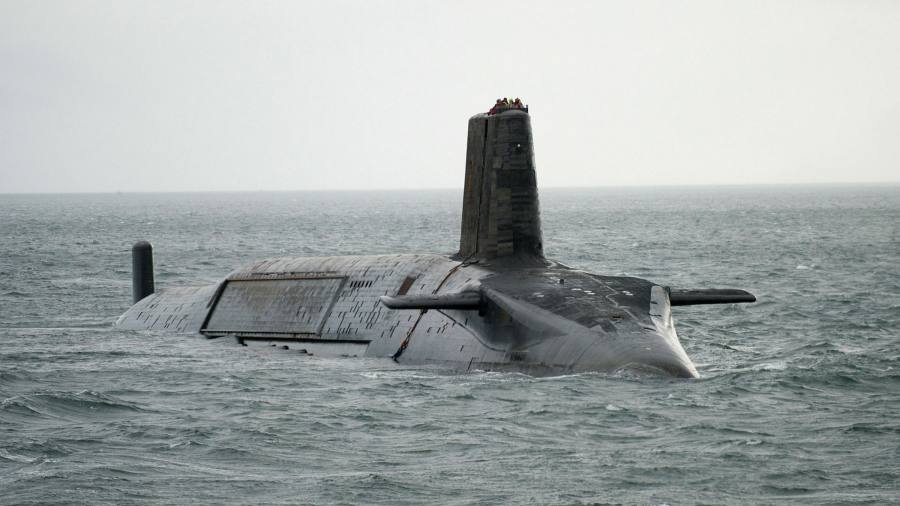[ad_1]
Downing Street is to raise the number of Trident nuclear warheads the UK can stockpile by more than 40 per cent in its integrated review of defence, security and foreign policy to be published on Tuesday.
Boris Johnson, UK prime minister, is set to announce that the cap on the number of nuclear warheads will increase from its current level of 180 to 260, according to two people with knowledge of the document. The move — which signals a move away from Britain’s pursuit of non-proliferation in recent decades — is intended to cement the UK’s status as a nuclear power and firm US defence ally.
The 100-page defence and diplomatic strategy, “Global Britain in a Competitive Ageâ€, promises to be the most comprehensive review of UK foreign policy since the cold war and will allow the prime minister to describe his post-Brexit vision for the country. However, it has been repeatedly delayed while ministers focused on the coronavirus pandemic.
“I am profoundly optimistic about the UK’s place in the world and our ability to seize the opportunities ahead,†Johnson will tell MPs as he unveils the review in parliament.
“The ingenuity of our citizens and the strength of our union will combine with our international partnerships, modernised armed forces and a new green agenda, enabling us to look forward with confidence as we shape the world of the future.â€
Other announcements in the review will include a new counterterror operations centre to link up spies, police and prosecutors in combating the threat from both violent extremists and hostile states. Initially conceived in response to criticisms that police and MI5 did not share information effectively ahead of five UK terrorist attacks in 2017, the centre will be based in a new London headquarters, although security officials have said it will not be fully operational for some time.
While the hub will focus on combating the Islamic and far-right terrorist threat, it will also help counter the actions of hostile states, following the attempted poisoning of former Russian double agent Sergei Skripal and his daughter in Salisbury three years ago. The UK has blamed the GRU, Russia’s military intelligence agency, for the attack.
Johnson intends to use the policy review to emphasise the strength of the UK union, according to Downing Street officials, illustrating his claim that Britain is stronger as a single entity than the sum of its four individual parts.
Apart from a shared military and foreign policy past, Johnson’s paper will highlight the fact that the UK has a seat at the UN Security Council and is a leading player in the Nato alliance.
“There are three fundamental national interests that bind together citizens in all parts of the UK: sovereignty, security and prosperity,†a UK government spokesman said.
The Scottish National party will counter that Johnson also took Scotland, unwillingly, out of the EU.
The paper will identify Britain as a country that upholds “the rule of lawâ€, although every living former British prime minister last year criticised Johnson for threatening to break international law in relation to the Northern Ireland Brexit settlement. The UK is now facing legal action by the EU following another alleged breach of the so-called Northern Ireland protocol.
In setting out defence priorities, the review will highlight the military threat from Russia while casting a more equivocal position on China, characterising Beijing as a “systemic challenge†rather than a security adversary.
However, it will place heavy emphasis on the UK military’s “tilting†towards the Indo-Pacific, where Beijing’s navy is increasingly assertive.Â
Lisa Nandy, Labour’s shadow foreign secretary, described a “yawning chasm†between the government’s words and its actions.
“It wants to uphold international law but repeatedly breaks it,†Nandy said. “It lauds the importance of conflict resolution and counter-terrorism while cutting those programmes in Syria and Iraq. It preaches peace in Yemen but sells arms to Saudi. It wants to build alliances but antagonises our allies. It wants to lead on climate change but has no plan for net zero.â€
Â
[ad_2]
Source link





